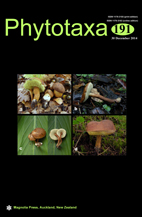Abstract
Since its launch in 2009 Phytotaxa has grown to be the leading journal in taxonomic botany, publishing the greatest number of articles, pages, and new names. It has replaced Taxon as the top journal by volume and total citation to current papers but not impact factor. More than just a journal, Phytotaxa has made it easier for authors to publish in botanical taxonomy and has improved access to publication for disadvantaged authors. This is reflected in it gaining ‘market share’ from biodiversity-rich BRIC countries, which have invested in their taxonomic capacity. It could also reflect a shift away from Europe & US as main descriptors of plant diversity. We believe that Phytotaxa has been well accepted by the taxonomic community because it is free at point of publication (barrier-free to authors of all income brackets), flexible (unlimited issues and pages) and rapidly indexed with an impact factor that is relatively high for a taxonomic journal. Phytotaxa thus meets the needs of the broadest group of taxonomists who survive based on publication number and impact factor, and who do not have access to funds to support open-access publication. We suggest that it is eminently feasible to fully describe and typify all plant diversity using the Linnean system, but that do so in a timely manner and so meet Society’s needs in the face of the mass-extinction of biodiversity and climate change. Phytotaxa will work with all taxonomists to continue to promote taxonomy as a scientific discipline.

